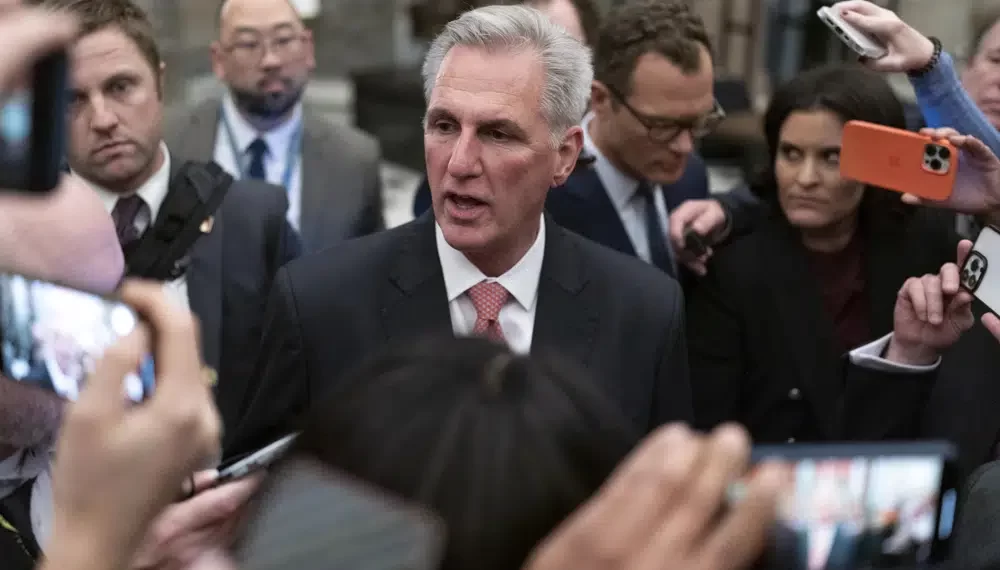The Republican leader of the House of Representatives, Kevin McCarthy, has yet again been unsuccessful in his latest bid to get elected as Speaker, even after eleven rounds of votes.
On the third day of ballot on House Speaker, McCarthy lost the seventh, eighth and then ninth, 10th and 11th rounds of voting.
A group of 20 hard-line Republican lawmakers are refusing to give Mr McCarthy the necessary 218 votes
Lawmakers in the sharply divided chamber will reconvene at noon (17:00 GMT) on Friday, January 6, 2023, the second anniversary of a riot by Trump supporters at the US Capitol.
McCarthy agreed to a number of concessions, including several of the key rules changes that the conservative Freedom Caucus have been seeking for months.
Those changes would reduce the power of the Speaker’s office and give lawmakers more influence in drafting legislation.
At the core is the re-instatement of a House rule that would allow a single lawmaker to make a motion to “vacate the chair,” essentially calling a vote to oust the speaker; a move McCarthy had resisted because it had been held over the head of past Republican Speaker, John Boehner, chasing him to early retirement.

Other wins for the holdouts include provisions in the proposed deal to expand the number of seats available on the House Rules Committee, to mandate 72 hours for bills to be posted before votes and to promise to try for a constitutional amendment that would impose federal limits on the number of terms a person could serve in the House and Senate.
While these concessions could attract some new support, other opponents have raised different concerns that have yet to be fully addressed.
Even if McCarthy is able to secure the votes he needs, he will emerge as a weakened speaker, having given away some powers and constantly under a threat of being voted out by his opponents.
However, he would also be potentially emboldened as a survivor of one of the more brutal fights for the gavel in U.S. history.
Rules do not require the speaker to be a member of the House, and on Thursday, Florida Republican rebel, Matt Gaetz cast a protest ballot for Donald Trump to serve in the role; a symbolic but pointed sign of the broad divisions over the Republican Party’s future.
“This ends in one of two ways: either Kevin McCarthy withdraws from the race or we construct a straitjacket that he is unwilling to evade.”
Matt Gaetz
Brushing back questions about the lengthy, messy process, McCarthy remarked, “We’ve got some progress going on. It’s not how you start, it’s how you finish.”
Democrats Persist In Their Vote For Jeffries
Meanwhile, the minority Democrats continued to vote in unison for their leader, New York’s Hakeem Jeffries, the first black person ever to lead a party in Congress.
However, it seems unlikely that Jeffries could win over six Republican defectors to become House Speaker.
Democrat Jeffries of New York won the most votes on every ballot but also remained short of a majority. McCarthy ran second, gaining no ground.
House Republicans won 222 seats in the new Congress, so for McCarthy to reach 218, he can only afford to lose four GOP votes.
With McCarthy’s supporters and foes in a deadlock, the House cannot fully open for the new session, essentially at a standstill, unable to swear in elected members and conduct official business.
The Speaker of the House is the second in line to the Presidency, after Vice-President Kamala Harris. They set the agenda in the House, and no legislative business can be conducted there without them.
READ ALSO: Iran shuts down French institute over Charlie Hebdo cartoons





















